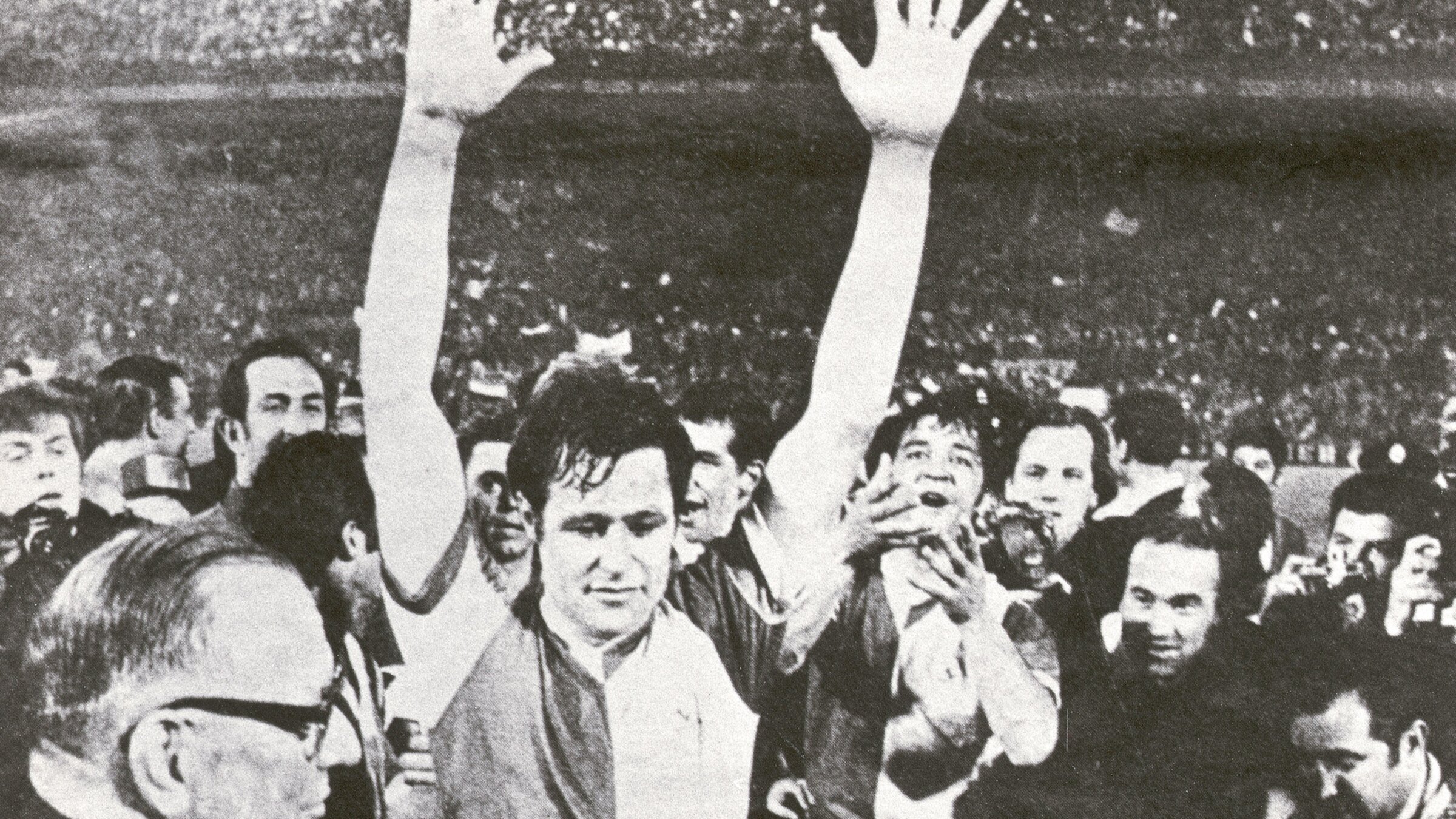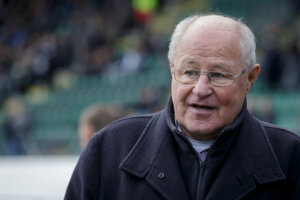He was one of the greatest Jewish soccer players who ever lived — pity you probably haven’t heard of him
Rinus Israël, who has died at 83, was the first Dutchman — and the first Jew — to lift the European Cup

Rinus Israël during the European Cup final, 1970. Photo by Getty Images
Although he remains little known beyond the country of his birth, Rinus Israël, who died July 1 in the Netherlands at age 83, was one of history’s great Jewish soccer players. In 1970, as captain of Feyenoord, Israël was the first Dutchman — and the first Jew — to lift the European Cup (the equivalent of today’s Champions League trophy).
Feyenoord went into the game as underdogs to a powerful Glasgow Celtic team that had won the competition in 1967. And they looked to be in trouble when Glasgow scored the first goal. But Israël scored the tying goal almost immediately — becoming the first Jewish player to score in the European Cup Final — and Feyenoord went on to win in extra time. As captain, he had the honor of receiving the cup and hoisting it in celebration.
The meaningless Club World Cup that is being played out in the USA this summer is a descendant of the Intercontinental Cup in which the champions of Europe played the champions of South America. Feyenoord beat Estudiantes in the 1970 iteration of that game — most famous for Oscar Malbernat ripping the glasses off substitute Joop van Daele’s head and trampling them in the grass after van Daele scored the only goal of the game. As captain, Israël held that trophy too — again the first Dutchman and the first Jew to hold it — as he was a few years later when Feyenoord became the only Dutch team to win the UEFA cup (now the Europa League) in 1974, beating Tottenham Hotspur.

Israël played 47 times for the national team but was left on the bench for the 1974 World Cup Final where the Netherlands — Johan Cruyff’s “total football” wizards, which was famously one of the best teams not to win the World Cup — was beaten by West Germany. No one claims that Israël would have changed the result, but the Germans looked like they would end up decisively defeated until the English referee gave a penalty for a foul (the Dutch claim it was a dive) by Wim Jansen, the defender who had replaced Israël on the team.
As a player, Israël (born Marinus David Israël) was known as Iron Rinus because of his reputation as a hard tackler and, while at Feyenoord, he formed a strong defensive partnership with Theo Laseroms that brought Feyenoord success throughout the late 1960s and early 1970s. Despite his name, it was not widely known at the time that he was Jewish. His parents, Andries Israël (a bricklayer) and Rebecca Reens, rarely spoke of their origins or how they had survived the Holocaust while he was growing up in Floradrop, Amsterdam.
Israël’s reticence about his ethnic origins might have also been the result of Feyenoord’s reputation for antisemitism. The team hails from Rotterdam, and their historic rivals, Ajax from Amsterdam, are known in the Netherlands as the Jewish club. So, in the decades that Israël played, and throughout the 1980s, anti-Ajax chants combined with anti-Jewish chants to make a pervasively antisemitic atmosphere.
In recent years, however, Feyenoord have striven to stop these chants and to make amends. They have looked to their history and recognized the surprisingly large number of Jewish Feyenoord club members who died in the war (27 out of the 45 members who were killed), acknowledged early Jewish players (Isaac Pinhashick played as early as 1915!) and Isaak ‘Ome Sjaak’ Barzilay — a landowner who provided a pitch to play on at a crucial moment in the club’s history.
Israël will be remembered at Feyenoord where he had most of his glory years (including Dutch Player Of the Year in 1970), in Ghana where he managed the national team, and across the Netherlands, where he will be remembered as one of the golden generation. But he will also be remembered at Excelsior Rotterdam, where he excelled after leaving Feyenoord, and he should be remembered across the Jewish soccer world as its most honored but least celebrated son.
















